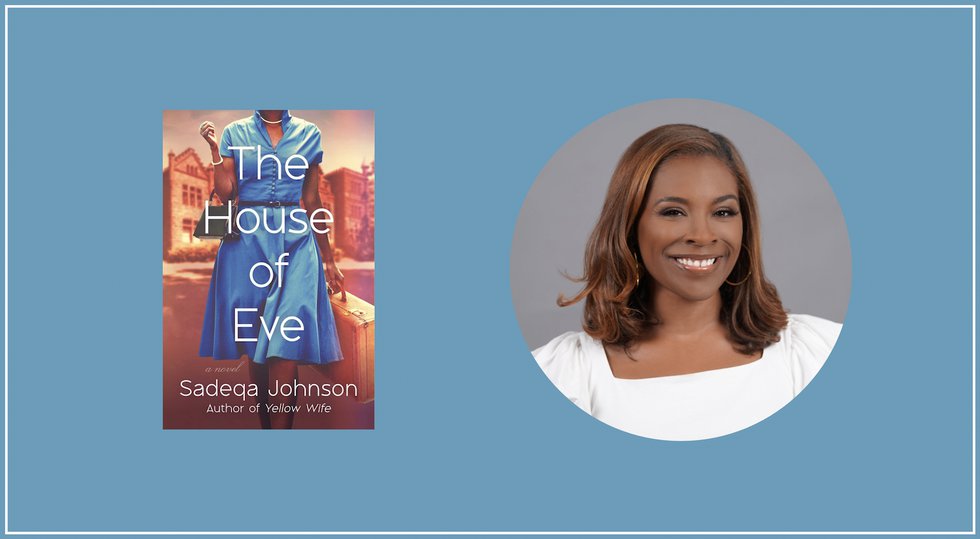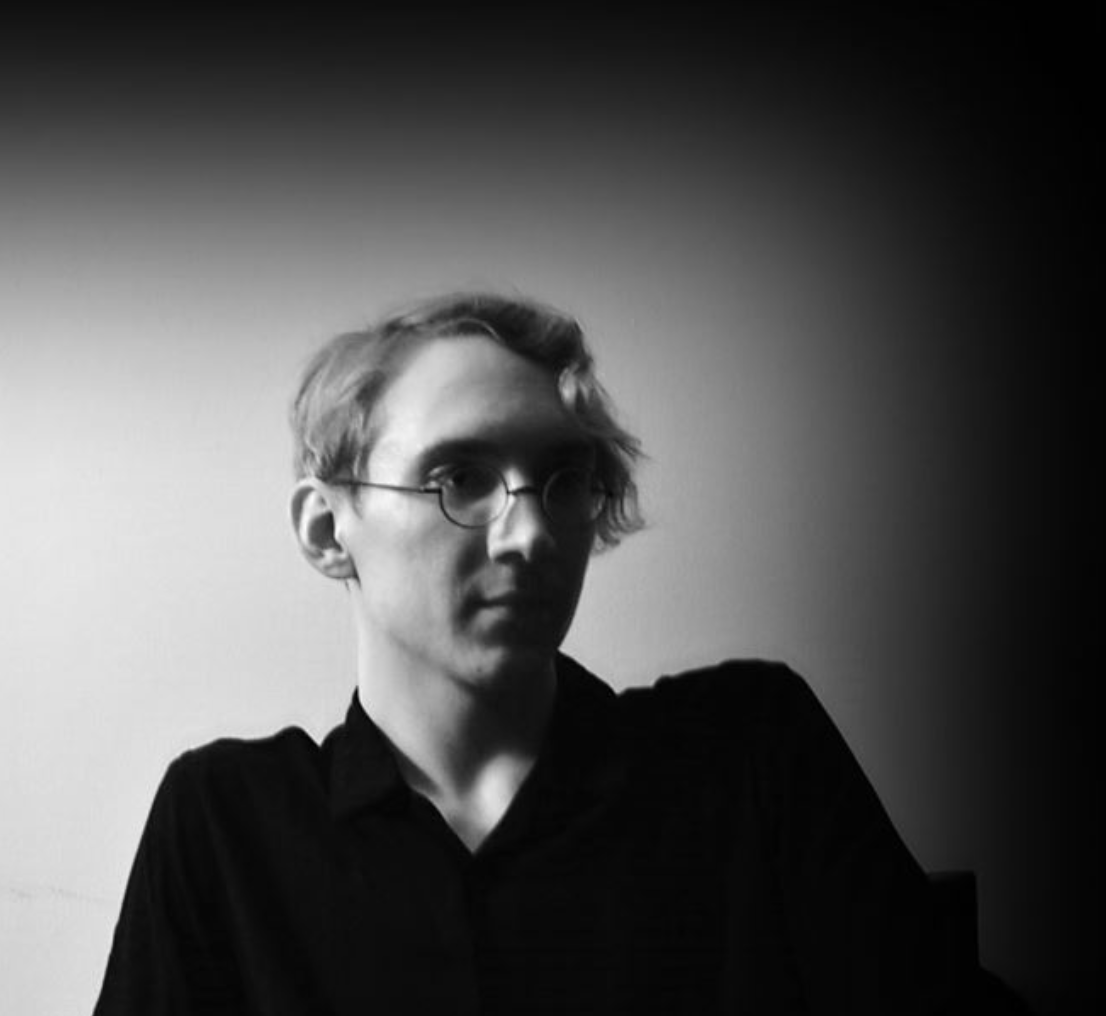We explore inspiration, heritage, womanhood, and a new book by this bestselling Virginia author.

The House of Eve by Sadeqa Johnson. Simon & Schuster. pp.384. $27.99.
Konstantin Rega: What inspired you to write this?
Sadeqa Johnson: One of the things that I was thinking about was my mother’s relationship with my grandmother—my mother and my grandmother had a very tumultuous one.
My grandmother told me that she’d had my mother at the age of 15—this was the early 1950s and she was unmarried. In fact, when she went to my grandfather’s family and asked them to have him marry her, they said no. That’s because my grandfather’s family was from another part of north Philadelphia. They were very light-skinned, and my grandmother was brown. And so they didn’t think that it was a good match.
And my mother said that she didn’t think that there was ever any real love between her parents, she thought it was sort of like a one-time hookup, and this is what happened. So there was a lot of shame and guilt around my grandmother being pregnant, so young without a husband. And so they hid her pregnancy from everyone, including the child that she had. So my mother tells me that she didn’t know that her mother was her mother until she was in the third grade. Up into that point, she had lived with her grandmother.
And that got me thinking about the choices that women have to make, particularly in the ‘40s in the ‘50s when it came to sex and marriage and children. This thought led me to these homes for unwed women. And between 1945 and 1975, around 1.5 million babies were born in these homes.
As I was researching and learning about these homes, I became absolutely fascinated. It’s a history I didn’t know much about. I really had a difficult time locating black women in these homes and finding their stories. And so that was sort of the beginning of The House of Eve. And that was the beginning of Ruby’s character was sort of this family history and tying it into these homes for unwed women.
Where did some of the other characters come from?
So when I first sat down to write the book, I was really just thinking about Ruby, and I thought it was going to be solely her story. But in my office one day, Eleanor just appeared to me. And she came in enraged and desperate. And I just kept hearing her say, ‘she wanted a child, she needed a child.’ And then that led me sort of in a different direction.
And so I started reading Our Kind of People by Lawrence Otis Graham, and it talked about black families that were very wealthy and very successful for generations. And he basically went into each major city and talked about some of these families and what their lives were like. I zeroed in on Washington, D.C., because of Howard University primarily.
I saw Eleanor as this girl who came from middle America, who didn’t know much. And she stumbled into this family of very wealthy, black people in D.C. And that was sort of how I was able to tie in the idea of how these wealthy people dealt with the ability not to have a baby.
Did you always want to be a writer?
I started off wanting to be an actress when I was very young. My goal was to get on television. I was actually a theater major in college. And I switched to communications halfway through because I realized I probably needed a job when I graduated.
So I found myself working in publishing my first thing out of college with Scholastic Books. I was surrounded by books and surrounded by authors and I just kept thinking, ‘Well, I think I could do this.’
And it was there that I started working on my first novel, and that book never saw the light of day. But then I quickly started working on a second novel, and that one took me over 10 years to finish and get published. That came out in 2012. I mean, I started off self-published, and, literally, my husband and I would pack up Love in a Carry-On Bag and our trunk with a table and retractable wheels. And we’d go to every book festival, every hair show, anywhere that buyers would be, and set our table up and hand-sell my book.
For me, it was not easy. There were so many times that I just wanted to give up. But I kept striving and I finally got a publishing deal with St. Martin’s Press for my second and third novels. Then Yellow Wife came out in 2021. So it was a journey.
And if there’s anything that I could say to budding writers, it would be don’t quit. Don’t let someone else define your measure of success. Just keep putting one foot in front of the other even when it feels like you are trudging through the snow with no boots on. Keep going. Because there is some sunshine at the end of that walk. And I’m glad I didn’t quit because here we are talking about The House of Eve.
So what brought you to Virginia?
We (my husband and now three children) lived in New Jersey for about 17 years. And we were looking for a new home. I remember standing in my kitchen and Springfield, and I heard a voice that said ‘Move.’ And it wasn’t like moving down the street. It was like moving out of the state.
This was February of 2015. I told my husband, and we came down to the Richmond area two times and found a house by June.
Then nine months later, I found myself on the Richmond Slave Trail, where I discovered the story of Mary Lumpkin, and began my very first historical fiction novel. And that would change my life. Up until that point, I was writing contemporary fiction, but the powerful universe had another plan for me.
What else do you like about being a writer?
I love the connection between writers and readers. One of my favorite things is talking to book clubs, because they love books as much as I do. Those are my favorite people to be around.
I do it quite often. I meet with book clubs virtually a couple of times a week, actually, just to talk about the book and other things that I have done. I also teach an MFA program at Drexel University. So I have the privilege of working with MFA students, and I teach for a company called Story Summit, where I do a small group mentoring.
I always tell my students that I get as much out of my class with them as they (hopefully) do. I’m not just giving, I’m also receiving. When we’re together that synergy we create for each other it bounces right back to me as well.
What do you want the reader to get out of the novel? What do you want to show them about these situations?
These two characters have to make these impossible decisions and decisions that women today are still facing. One of the things that I see myself as charged to do as a historical fiction writer is to shine a light in these dark spaces in history, where most people don’t know what we’ve been through, and bring it to the surface.
I feel that my job is to give our ancestors a voice when they had no voice, when people told them that they weren’t important and that their stories weren’t important. And so I hope that readers get that we are—as much as we are different—we are also alike. And our struggles are all very similar.
Also, I think that I just want us to have these conversations. The more we talk about it, the easier it becomes. Our country was built on the backs of all of these people that I’m talking about in my stories, and I think that it’s okay to have the conversation so we can start bridging those gaps and start healing from our history.
And so what I really want people to do is read my books. I wanted to discuss them with people that they know and people that they don’t know, and let’s begin the healing process so that we could, you know, move forward in a different light.
And what are you working on now?
Well, I’m sort of thinking about legacy, about what I leave for the next generation. History is being so washed out. I feel my job is to write historical fiction in a way that is as truthful as possible so that we could learn about these moments that are being forgotten and actually being rewritten in a way that’s not true.
So I’m already thinking about my sixth novel, it’s just a pebble in my head right now. But it’s another historical fiction. And so I can’t really say right now, because it’s sort of in the beginning phases. But it’s another flashlight of a moment in history that most people don’t know about.
Events:
February 7 – Richmond Public Library
February 18 – The Book Bar
March 6 – The Little Bookshop
Get a copy at The Bookstore.








